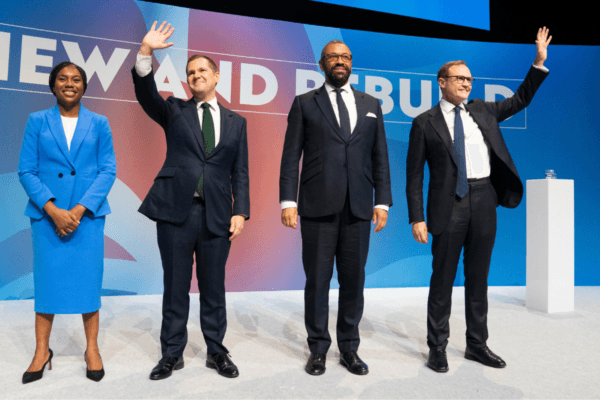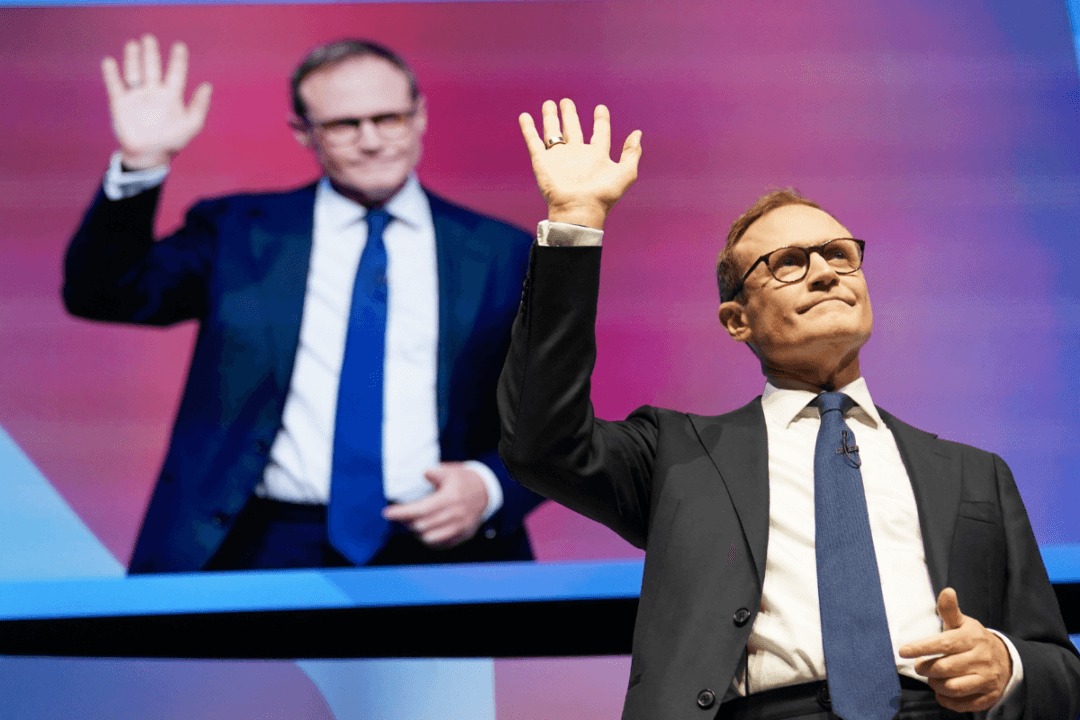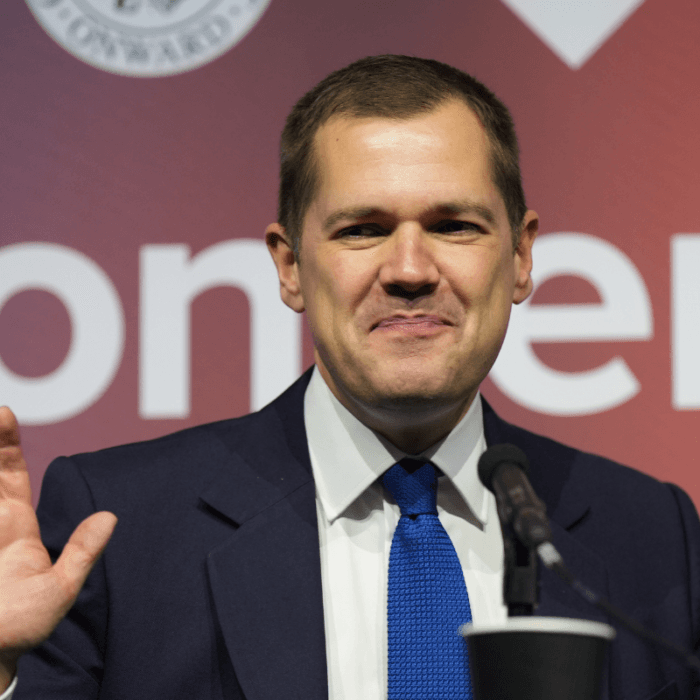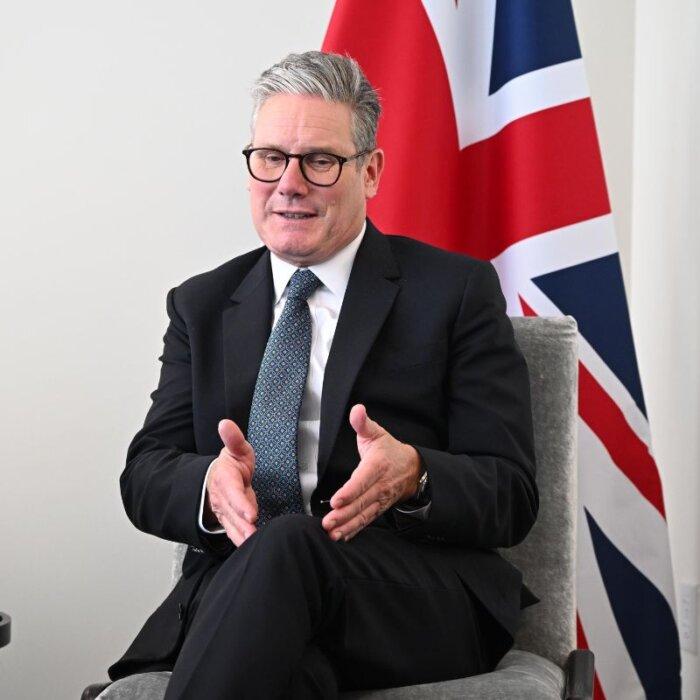The UK needs a “new Conservative revolution,” Tory leadership contender Tom Tugendhat said as he outlined his vision for the party.
The former security minister told party conference attendees on Wednesday the only way to win back votes from disenfranchised Conservatives is to “focus on what the British people need and be absolutely ruthless about delivering it—from health care and immigration to security and education.”
In terms of policy, Tugendhat said he would cap immigration at 100,000 a year, with the shortfall in skills being met by a pledge to train up the UK’s workforce.
He also said the UK should invest more in nuclear power which would mean the country would be less dependent on fossil fuels being supplied by hostile nations or from unstable parts of the world.
“We need a Conservative revolution in thinking across the government to get there, and the only way that we’re going to industrialise our economy and get jobs back here is to have a Conservative revolution now,” Tugendhat said.
Rebooting the State
Former Business and Trade Secretary Kemi Badenoch borrowed language from her time as an engineer to tell members that if she became leader, she would “rewire, reboot, and reprogram” the British state, reconsidering every aspect of it, including the nation’s international agreements, the Human Rights Act, the Equality Act, and the Civil Service.Badenoch said the reboot was needed because the government relied on economic models that did not work, with decisions by government being unenforceable because they are being “endlessly challenged in the courts,” citing instances where foreign child abusers could not be deported because of human rights laws.
The MP for North West Essex also warned against the resurgence of socialist ideas and identity politics.
She told conference: “The British public knows that socialism doesn’t work. They know, but if you give it a new label, you can sneak it in. You can promote class warfare under the banner of equality. You can take freedom and choice away from families by telling them that Ofsted inspection reports are unfair.
“If you call communism ‘environmentalism,’ you can close down businesses, block the roads, and stop people going to work.”
She added that this new politics had made people afraid to defend their beliefs, and it was up to the Conservative Party “to defend them, champion them, and give them a party they can be proud of.”

Leave the ECHR
Like Tugendhat, Robert Jenrick set out his vision for a “new” Conservative Party, alluding to how the Tories reinvented themselves in the 1970s and, under Margaret Thatcher, ousted the Labour government in the 1979 election.He also promised to get Britain building homes and infrastructure again, opposed extreme net zero policies, and called for “building a small state that actually works—not a big state that fails.”
‘Be Like Reagan’
In James Cleverly’s address to the conference, he emphasised the need to not just deliver on what people want, but to model positivity while doing it.“Let’s be enthusiastic, relatable, positive, optimistic,” Cleverly said, adding that the party should adopt the optimism of his political hero, former U.S. President Ronald Reagan.
“[Reagan] knew what optimism was. Even in the depths of the Cold War, he made Americans want to vote for a conservative—not reluctantly, but with enthusiasm. And then what did he do? He cut taxes, he cut regulation, he boosted military spending, and he won a landslide,” Cleverly said.
Part of his vision as leader would be to get rid of “bad taxes,” like stamp duty, and make sure that the state never takes more than half of any pound a person earns.
Signalling a desire to take the party towards a more Reaganesque, small government, free-market, direction, Cleverly continued to call for the cutting of red tape to build more infrastructure for the country.
“We need to build, build, build, and remake the argument for Conservatism—for capitalism—by our actions, not just our words,” he said.







